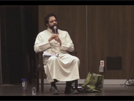Self Making for Social Work
- Details
- Hits: 2000
Self Making for Social Work
There is no doubt that when several forces join together, they become more effective. Many a big job cannot be accomplished by individual effort, especially during the present age when collective relations are developing and the jobs are tending to become more elaborate and complicated.
Small capital cannot compete with business giants. Divided forces are subjugated by big powers. Higher scientific research cannot be fruitful without co‑operation and co‑ordination. Social services and social activities on a large scale are not practicable with scattered human resources and limited capital.
Such actions as patronage of an orphan, providing food to a few needy persons, educating a few children in ‑modest school, or arranging some individual training or guidance might have been regarded in the past as an accomplishment, but in the modern age of competition such solitary and limited steps cannot be considered to be adequate.
In our age large scale teaching, training, scientific and co‑operative organizations are required to produce any constructive effect on the society.
Hence, the far‑sighted people should, besides making individual efforts, take positive collective steps and also feel a sense of responsibility. Such efforts should be made in the form of a group.
Pre‑requisities for collective work
(1) One aim and one policy
The persons who want to work together must know clearly what they aim at by doing that work. First of all they should know what they want, and then should pursue their objective with understanding, confidence and interest. If the aim is not predetermined everyone will go his own way so as to implement his own ideas. The result will be confusion and disintegration.
To have a definite aim is not necessary only for collective work, but is necessary for individual activities also. If a person selects a subject for his education, picks up a book for study, decides to make a journey, chooses a profession or calls on certain people, he should know why and for what purpose he is doing that. Aimless activity means wastage of time and effort and confusion in life. That is the position in the case of individual activity. As far as collective work is concerned, it is far more necessary to have a definite aim, because in this case the time, energy‑ and capital of so many people will be involved, and as such, aimlessness will cause a bigger loss. Hence a definite and clear aim accepted by all those who co‑operate for this purpose, is essential for any collective work.
Further, the whole group of organizers must have the same policy; in the sense that they must have pre‑determined the ways and means of reaching their objective and mentioned the same in the articles of association.
Suppose a social organization aims at the intellectual guidance of the society, and all its organizers agree to this aim. Still it should be known how they intend to carry out the proposed service. Will they carry it out through the establishment of schools and academies, by publishing books and pamphlets, by holding conferences and seminars etc. And in each case what will‑ be the level of their activity and how will the work begin? On all these points the organizers must take a unanimous decision.
(2) Recognition of one's own limitations and those of others
Usually people are not prepared to come out of their shell and take others into account. Everyone thinks that he understands everything and is fit to do every job. At the time of the division of responsibility, for example, election of the executive body, the chairman or the managing director, everybody thinks that he is quite fit to hold the particular post.
The holy Prophet said:
"May Allah bless him who knows his worth and his position and does not go beyond his limit".
One should be bold enough to admit that he has certain short‑comings and cannot shoulder certain responsibilities. He should admit that someone else is better than he is, and, for example, has better managing capacity, can take firmer decisions, is more industrious or has a broader outlook. Should there be such a group of people of which everyone knows where he stands and recognizes the weak and strong points of himself and others, it is easier to put every piece in its right place and distribute responsibilities on the basis of competence. In such a case the net output resulting from the mutual co‑operation of that group will be far bigger.
(3) Just appraisal of one's own work and that of others
A number of people may jointly achieve success in their work and may gradually build up their position. In this case it is necessary to recognize the factors effective in the success and appreciate them. It will not be proper if everyone claims that the progress is due to his initiative and ignores the efforts made and the trouble taken by others. It is also wrong to blame and criticize others for every case of stagnation or failure. One should be just, realistic and impersonal. If it is proved that he himself is responsible for a failure, he should either improve himself and make amends for the past mistakes, or step aside and vacate the place for a more competent person. If however it is found that somebody else is responsible, his explanation should be called and effort should be made to give him better training. This judgment should be impartial even if the closest relatives or friends are involved.
The Qur'an says:
"Believers, adhere to justice and bear witness before Allah, even though it be against yourselves, your parents or your relatives" : (Surahal‑Nisa, 4:13 5 ).
The constructive and effective role of the individuals should always be appreciated so that values bloom better, positive forces bear fruit and more progress is achieved.
Otherwise with the non‑appreciation of efficient persons the promotion of pretenders and intriguers and the habit of taking undue credit for the work of others, the real workers will gradually be disheartened and lose interest, with the result that by and by the whole machinery will come to a stand‑still and the association will disintegrate.
(4) Abstention from egoism and being self‑opinionated
Egoism is a great curse for collective work. A person who pays no attention to the views of others and thinks that at the meetings he alone has the right to speak while others have to listen and endorse the decisions taken by him, will be left alone. In case he has much influence, he will make others submit to him unwillingly. In such a case, it will become the work of an individual and will no longer be a collective work. Others will only be his tools and functionaries and not his associates and co‑workers.
But if everybody recognizes the right of others and respects their opinion, all ideas and forces are put to use, everyone is encouraged to take an active interest, and the work becomes truly collective.
(5) Respect for majority opinion
Whenever the individuals are required to express their opinion on a question, it is a duty of everybody to weigh properly all its aspects and then form a firm opinion. Once he has done so, he should be able to defend and explain his view. If still the result of voting goes against him, he should unreservedly submit to the opinion of the majority and should earnestly co‑operate in the implementation of the decision taken. It is wrong to have a negative attitude. No doubt it is difficult to take an action against one's own inclination and opinion, but collective interest has to be given preference over individual interest so that work may not suffer.
It is obvious that the principle of abiding by the opinion of majority is valid only in the case of the questions which are subject to voting and where the opinion of the majority is not repugnant to the basic principles ratified by all members at the beginning of their undertaking. Otherwise if the majority opinion violates the basic principles, it has no value.
Suppose some persons jointly set up an industrial company and in its prospectus they lay down that their organization will take no steps contrary to the Islamic injunctions.
In this case if they decide to do a thing which is definitely against Islamic law, their decision, even if it is unanimous, will be null and void. However, if the decision conforms to all the agreed principles, but does not suit one or a few individuals, then the opinion of the majority should prevail and their decision should be implemented, for it was accepted by all members from the beginning that the decision of the majority would be enforced. In such a case nobody has a right to non‑co‑operate after a decision has been taken and ratified.
Elections for various posts and offices should be free from partiality and nepotism. Fitness and suitability should be the only criteria. Once free and fair elections have taken place, it is the duty of every member to co‑operate with those who have been elected and give them his wholehearted support, even though the result of the election be against his personal wish.
Going minutely through the above mentioned principles we observe that the basic condition for the success of any collective work, in addition to faith in the objective and a feeling of responsibility, is self‑control and fight against egoism. A self‑respecting extrovert person gifted with will power can always participate in collective work. This participation will train him to be useful to himself and the society.
Once when the Muslims were back after a fierce fighting, Prophet Muhammad (P) asked them to prepare themselves for' a major jihad. They cried in wonder: "Which other jihad!" The Prophet said: `Jihad against yourselves".











